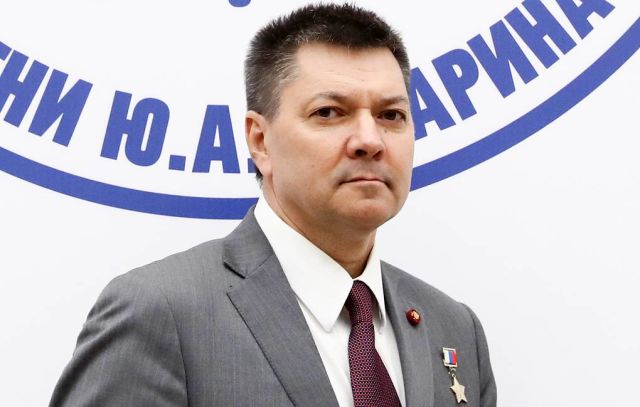Roscosmos congratulated Oleg Kononenko, Oleg Artemyev and Alexey Ovchinin on the presentation of state awards and wished them "new space achievements for the good of Russia"
MOSCOW, December 28. /tass/. Cosmonaut Alexey Ovchinin, who survived the Soyuz-FG launch vehicle accident in 2018, was awarded the Order of Courage in the Kremlin. This is stated in the message of Roscosmos, distributed on Tuesday.
"Alexey Ovchinin was awarded the Order of Courage for his courage and high professionalism shown in the performance of official duty in conditions associated with an increased risk to life," the message reads.
As specified in the state corporation, also for the courage and high professionalism shown during a long space flight to the ISS, deputy head of the Cosmonaut Training Center named after Yuri Gagarin - commander of the cosmonaut detachment Oleg Kononenko was awarded the Order of Merit for the Fatherland II degree, cosmonaut Oleg Artemyev - the Order of Merit for the Fatherland IV degree.
The ceremony was held in the Catherine Hall of the Kremlin, it was conducted by the First Deputy head of the Presidential Administration of the Russian Federation Sergey Kiriyenko.
"The management and employees of the Roscosmos State Corporation, the Cosmonaut Training Center, the cosmonaut squad, veterans of the space industry congratulate Oleg Kononenko, Oleg Artemyev and Alexey Ovchinin on the presentation of state awards and wish them new space achievements for the benefit of Russia," Roscosmos stressed.
The Soyuz-FG accident
The Soyuz-FG carrier rocket with the Soyuz MS-10 manned spacecraft crashed on October 11, 2018 shortly after launch from the Baikonur Cosmodrome. On board were Roscosmos cosmonaut Alexey Ovchinin and NASA astronaut Nick Hague, who, thanks to the rocket's emergency rescue system, landed safely in the Kazakh steppe.
The Commission concluded that the Soyuz-FG accident occurred as a result of the impact of one of the side blocks of the first stage on the second stage of the carrier at the separation stage: the block did not have a withdrawal system away from the rocket due to the corresponding sensor bent during assembly at Baikonur.

